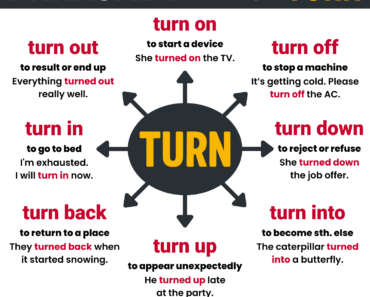
In English, personal titles like Mr., Mrs., Ms., and Miss are used before a person’s last name (or full name) to show respect, gender, and marital status. However, these titles have different meanings and are used in different situations.
Understanding when to use Mr., Mrs., Ms., and Miss is important for formal communication, business emails, and everyday interactions. In this article, we will explain the differences between these titles, how to use them correctly, and provide examples to help you understand them better.
What Does “Mr.” Mean?
Mr. (pronounced “Mister“) is used for all men, regardless of whether they are married or single.
Usage:
- Used for men only.
- Does not indicate marital status.
- Used in formal and professional settings.
Examples:
- Mr. Johnson is our new English teacher.
- Excuse me, Mr. Smith, can I ask you a question?
What Does “Mrs.” Mean?
Mrs. (pronounced “Missiz“) is used for married women.
Usage:
- Used for women who are married.
- Traditionally, it is followed by the husband’s last name.
- Common in formal settings but less used in professional environments today.
Examples:
- Mrs. Anderson will be leading today’s meeting.
- My teacher’s name is Mrs. Thompson.
What Does “Miss” Mean?
Miss (pronounced “Miss“) is used for unmarried women.
Usage:
- Used for young girls or unmarried women.
- Common in schools, workplaces, and polite conversation.
- Sometimes used as a respectful term for young women.
Examples:
- Miss Taylor is my dance instructor.
- Excuse me, Miss, you forgot your bag.
What Does “Ms.” Mean?
Ms. (pronounced “Mizz“) is used for women regardless of their marital status.
Usage:
- Used for both married and unmarried women.
- Preferred in business and professional settings.
- A neutral option when you don’t know or don’t want to mention marital status.
Examples:
- Ms. Carter is the CEO of our company.
- Please contact Ms. Green for further details.
Comparison Table: Mr. vs. Mrs. vs. Ms. vs. Miss
| Title | Who It’s For | Marital Status | Usage |
|---|---|---|---|
| Mr. | All men | Married or single | Formal, general use |
| Mrs. | Married women | Married | Formal, traditional use |
| Miss | Unmarried women | Single | Formal, traditional use |
| Ms. | All women | Married or single | Professional, polite, neutral option |
When to Use Each Title?
- Use “Mr.” when talking to any adult man, regardless of his marital status.
- Use “Mrs.” when addressing a married woman, usually in formal settings.
- Use “Miss” when addressing a young girl or unmarried woman.
- Use “Ms.” when addressing a woman in a professional or neutral way, especially if you don’t know her marital status.
Tip: If you’re unsure, use “Ms.” because it’s the most neutral and widely accepted for women.
Personal Titles Quiz
1. What title should you use for a married woman?
a) Miss
b) Mrs.
c) Ms.
2. What title is used for all men, regardless of marital status?
a) Mr.
b) Mrs.
c) Miss
3. Which title is commonly used for young, unmarried women?
a) Ms.
b) Mrs.
c) Miss
4. If you don’t know a woman’s marital status, which title should you use?
a) Miss
b) Mrs.
c) Ms.
5. What is the correct title for a male teacher?
a) Mr.
b) Ms.
c) Miss
6. Which title is more neutral and professional for women?
a) Mrs.
b) Ms.
c) Miss
7. What is the polite way to address a female CEO in a business email?
a) Mrs.
b) Miss
c) Ms.
8. If a woman is recently divorced and doesn’t want to use “Mrs.,” what should she use?
a) Mr.
b) Miss
c) Ms.
9. Which title is used for women in formal, traditional settings?
a) Mr.
b) Mrs.
c) Ms.
10. What is the best title to use in a professional setting when addressing a female colleague?
a) Mrs.
b) Ms.
c) Miss
Quiz Answers
1) Mrs.
2) Mr.
3) Miss
4) Ms.
5) Mr.
6) Ms.
7) Ms.
8) Ms.
9) Mrs.
10) Ms.






